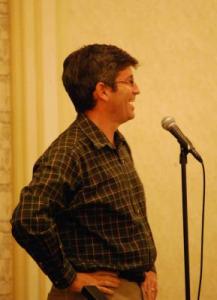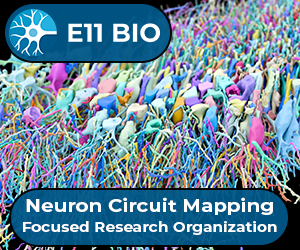Voice, story, character, structure, and authority. The elements of a great novel wouldn’t look much different (with the possible exception of authority). And the message of this afternoon's session "Great science writing part II: Building the big book" was clear: science writing, at its very best, is great literature. In science, we may find the comedies and tragedies, the romances and poetry, of our age.
Each of the panelists took on a different element, beginning with style — as interpreted by author KC Cole. She described how she veered into science, from writing for magazines like People and Glamour, when she had grown tired of her own voice, a “chatty” style that had become overly familiar. As a stylist, she cautioned, you need to avoid becoming a caricature. Practice different ranges.
Next, author Jonathan Weiner talked about how scientists and science journalists often have different views of what makes a good story. Weiner cited French mathematician Blaise Pascal on the subject: “What’s a story? You want to be able to say, ‘It goes like this: ~~~~~.’” (Pascal drew a curvy, graph-like line in his journal.) And the novelist John le Carré: “The cat sat on the mat — that’s not a story. The cat sat on the dog’s mat — that’s a story.” Great science writing is a matter of seamlessly intertwining these two kinds of stories: scientific exposition and narrative tension.
To author Charles Seife, characters are like "lampposts that illuminate history.” And in his book Zero: the Biography of a Dangerous Idea, finding a constant light source was a problem, given that the narrative covered two thousand years of history. The solution? Personifying the number, and casting Zero itself as the protagonist. In his book, Zero is born, grows, struggles, clashes, and even punches a hole in something.
Speaking about structure, author Jennifer Ouellette drew a metaphor between a book and a car. If story is the engine, character is the heart, and voice is the comfy interior, structure holds the whole thing together. Start with an outline, she says, but know it’s going to change.
And lastly, author Carl Zimmer (pictured above) took on the most idiosyncratic of the five elements: authority. “It’s problematic for people like myself — that is, English majors,” he acknowledged. But building authority is ultimately a matter of becoming obsessed, finding an addiction, digging into history — and not skimping on footnotes. Even an English major can get to know a subject better than all but a few people. “If you don’t believe me about that,” Zimmer said, “we can talk later about shark tapeworms.”



